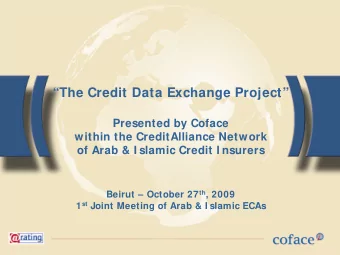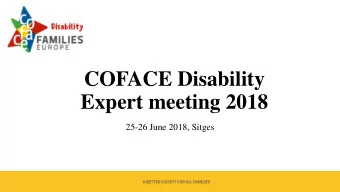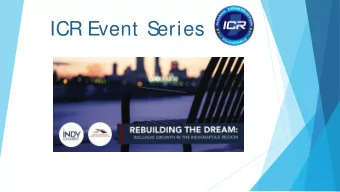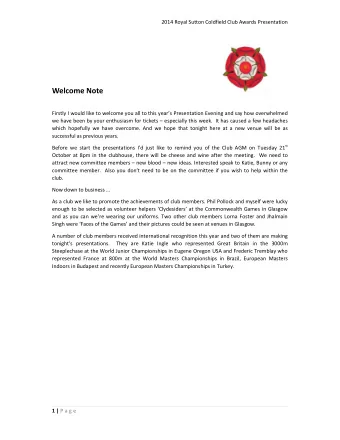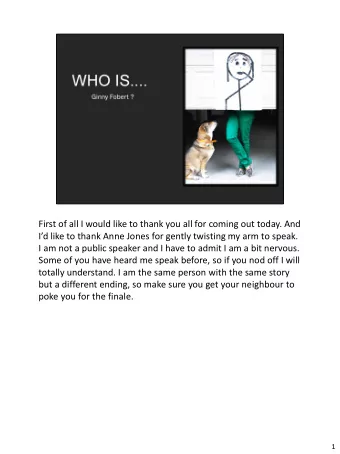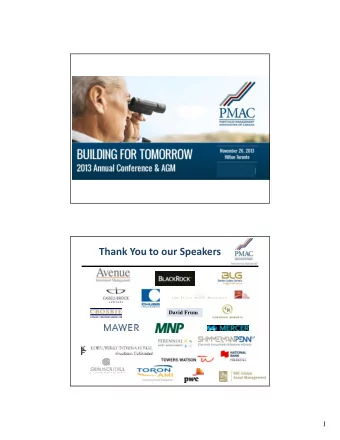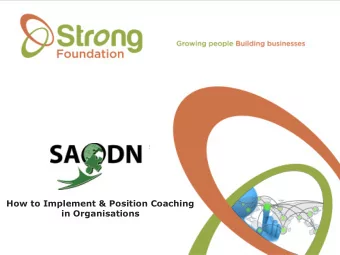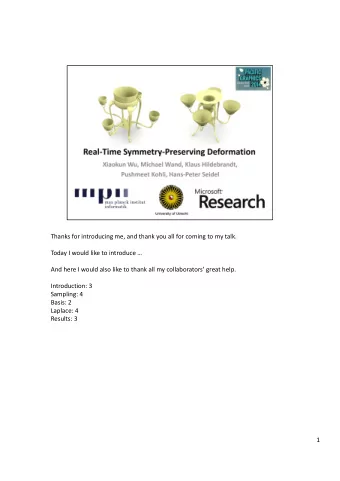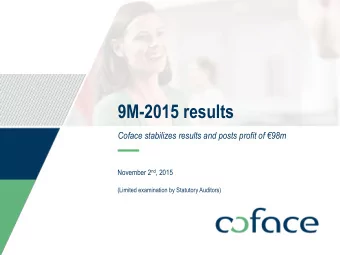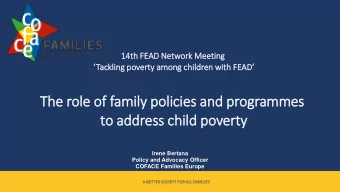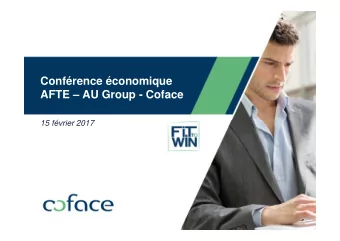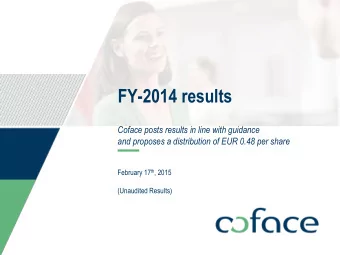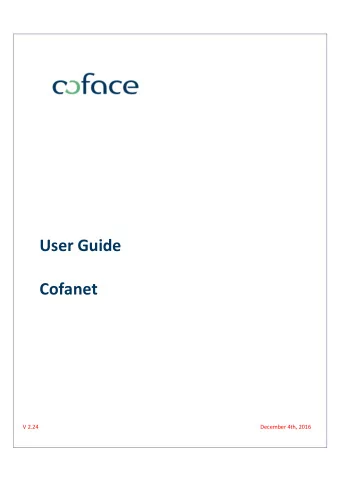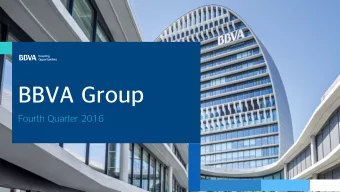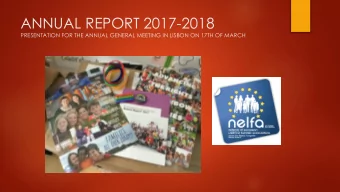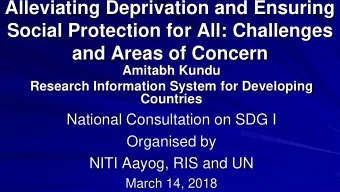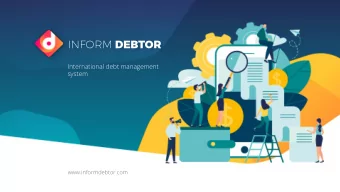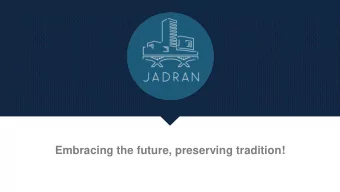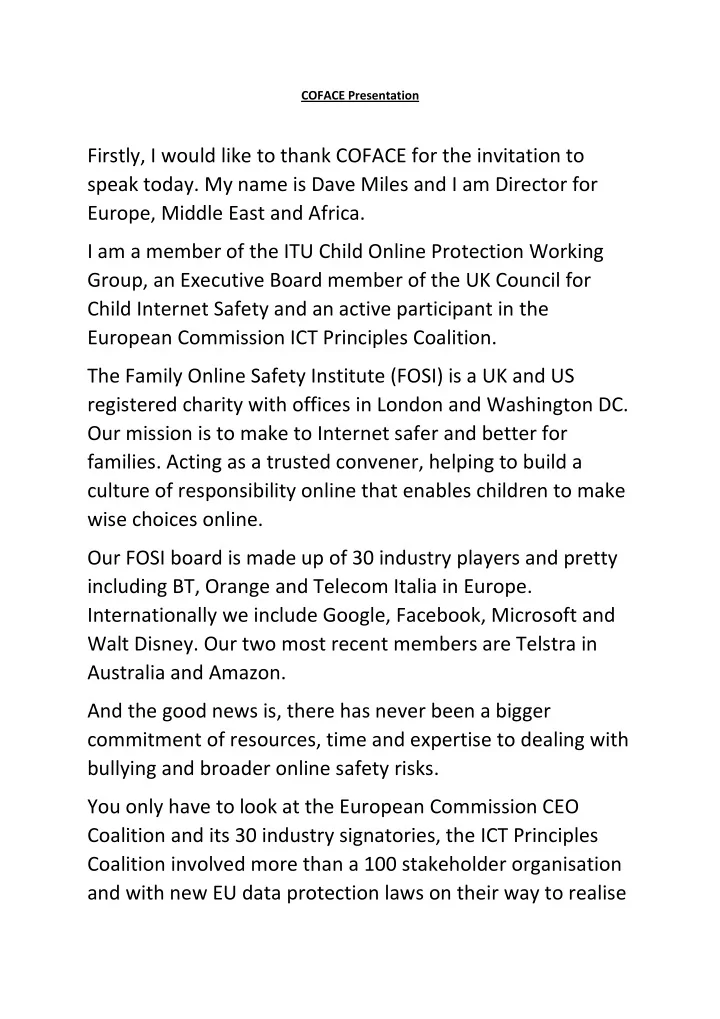
Firstly, I would like to thank COFACE for the invitation to speak - PDF document
COFACE Presentation Firstly, I would like to thank COFACE for the invitation to speak today. My name is Dave Miles and I am Director for Europe, Middle East and Africa. I am a member of the ITU Child Online Protection Working Group, an
COFACE Presentation Firstly, I would like to thank COFACE for the invitation to speak today. My name is Dave Miles and I am Director for Europe, Middle East and Africa. I am a member of the ITU Child Online Protection Working Group, an Executive Board member of the UK Council for Child Internet Safety and an active participant in the European Commission ICT Principles Coalition. The Family Online Safety Institute (FOSI) is a UK and US registered charity with offices in London and Washington DC. Our mission is to make to Internet safer and better for families. Acting as a trusted convener, helping to build a culture of responsibility online that enables children to make wise choices online. Our FOSI board is made up of 30 industry players and pretty including BT, Orange and Telecom Italia in Europe. Internationally we include Google, Facebook, Microsoft and Walt Disney. Our two most recent members are Telstra in Australia and Amazon. And the good news is, there has never been a bigger commitment of resources, time and expertise to dealing with bullying and broader online safety risks. You only have to look at the European Commission CEO Coalition and its 30 industry signatories, the ICT Principles Coalition involved more than a 100 stakeholder organisation and with new EU data protection laws on their way to realise
that progress is being made. Whether it’s better reporting tools and do not track as standard. There is a business case for online safety that was not there ten years ago. And when I was invited to speak, I am reminded than two weeks ago we held our Annual European Forum in Dublin. And there cyberbullying plays out against the content of four decades of institutional child abuse within homes run by the Catholic Church. So cultural context is key and bullying of any kind predates the Internet age. And really that was the first key point I wanted to make: Sometimes to term cyber bullying is unhelpful. It is bullying through the use of technology, when in fact bullying itself should be treated as technology neutral. And if we unpack the term bullying within that is physical and mental abuse, harassment, violence and neglect. Sadly, bullying is part of the human condition. Should we tolerate it, absolutely NOT! Three years ago we sent about building the first ever global e-safety portal called GRID. GRID tracks the legislation, research, ICT and online safety activities of all 194 UN member states. Just type in FOSI GRID into Bing or Google and it will be the top search result. Built by an expert team of editors we identify 26 identifiable online risks, issues. Bullying is globally the No.1 issue, followed by privacy/reputational concerns. It’s also important to state is that there is no law against bullying specifically. However, there are plenty of laws
around harassment, stalking and violence. Indeed, laws as related to online safety risks like sexting have increased significantly. Given this is the first time this data has ever been collected on a global scale what does it tell us? Key findings: • Adults perceived online risks to children bears little relationship to actual harm. • Bullying amongst children is simply the precursor to a life where most adults experience bullying • Figures from the UK and other countries also point to girls being twice as likely to experience persistent bullying as boys. • The use of technology to bully, harass or commit violence against women in Africa, Asia and the Middle East is on the increase. • Figures from Child Helpline International also show marked cultural differences. While in Europe 4% of contacts were about bullying involving teachers, in Africa it is 37%. • Countries and communities need to face up to their responsibilities. The absence of an age of consent and under age marriage underpin that abuse. More than 14 million girls under the age of 18 were married to older men in Sub-Saharan Africa in Africa last year. A significant percentage are under 15 years of age.
The global context in which cyberbullying plays out also gives some important insights. According to the ITU there are • 2.3 billion Internet users worldwide • 45% under the age of 25 years of age So this global technology revolution, once the preserve of adults is a revolution of youth. Children and teenagers are becoming consumers, creators and have digital lives. That’s why cyber bullying is a useful term. In-app purchases, tablets and children access the Internet through mobile devices and gaming is here to stay. 70% of the next billion users will not come from Europe or North America. So across the world bullying online is here to stay and we need tackle it with good guidance, support and sensitivity. Thank you for listening.
Recommend
More recommend
Explore More Topics
Stay informed with curated content and fresh updates.

